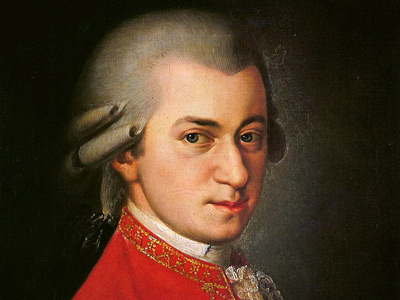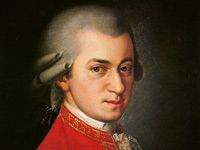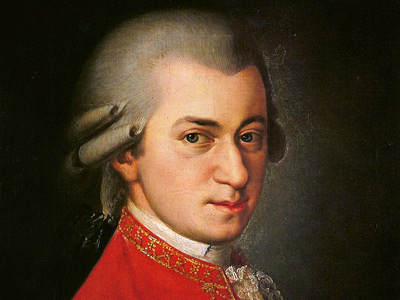Wolfgang Amadeus Mozart (1756-1791)

1773–77: Employment at the Salzburg court
After finally returning with his father from Italy on 13 March 1773, Mozart was employed as a court musician by the ruler of Salzburg, Prince-Archbishop Hieronymus Colloredo. The composer had a great number of friends and admirers in Salzburg and had the opportunity to work in many genres, including symphonies, sonatas, string quartets, masses, serenades, and a few minor operas. Between April and December 1775, Mozart developed an enthusiasm for violin concertos, producing a series of five (the only ones he ever wrote), which steadily increased in their musical sophistication. The last three—K. 216, K. 218, K. 219—are now staples of the repertoire. In 1776, he turned his efforts to piano concertos, culminating in the E-flat concerto K. 271 of early 1777, considered by critics to be a breakthrough work.
Despite these artistic successes, Mozart grew increasingly discontented with Salzburg and redoubled his efforts to find a position elsewhere. One reason was his low salary, 150 florins a year; Mozart longed to compose operas, and Salzburg provided only rare occasions for these. The situation worsened in 1775 when the court theater was closed, especially since the other theater in Salzburg was largely reserved for visiting troupes.
Two long expeditions in search of work interrupted this long Salzburg stay. Mozart and his father visited Vienna from 14 July to 26 September 1773, and Munich from 6 December 1774 to March 1775. Neither visit was successful, though the Munich journey resulted in a popular success with the premiere of Mozart's opera La finta giardiniera.
HISTORY

RESOURCES
This article uses material from the Wikipedia article "Wolfgang Amadeus Mozart", which is released under the Creative Commons Attribution-Share-Alike License 3.0.
© Stories Preschool. All Rights Reserved.









